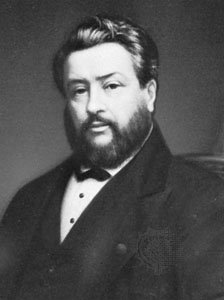-Jon Irenicus
The great Princeton theologian, Dr. B. B. Warfield, describes it as follows:
________________
The great Princeton theologian, Dr. B. B. Warfield, describes it as follows:
"Calvinism is evangelism in its pure and only stable expression, and when we say evangelism we say sin and salvation. It means utter dependence on God for salvation. It implies therefore, need of salvation and a profound sense of this need, along with an equally profound sense of helplessness in the presence of this need, and utter dependence on God for its satisfaction. Its type is found in the publican who smote his breast and cried, "God be merciful to me a sinner!" No question there of saving himself, or helpingJohn A. Broadus, one of the great and respected Southern Baptist fathers, in describing the Calvinism of Dr. James P. Boyce, his fellow-founder of Southern Seminary, said,
God to save him, or of opening the way to God to save him. No question of anything but "I am a sinner, and all my hope is in God, my Saviour!" This is Calvinism, not just something like Calvinism, or an approach to Calvinism, but Calvinism in its vital manifestation. Wherever this attitude of heart is found and is given expression in direct and unambiguous terms, there is Calvinism. Where this attitude of mind and heart is fallen away from it however small a measure, there Calvinism has become impossible. "
"The Calvinist, in a word, is the man who sees God. He has caught sight of the ineffable Vision, and he will not let it fade for a moment from his eyes - God in nature, God in history, God in grace. Everywhere he sees God in His mighty stepping, everywhere he feels the working of His mighty arm, the throbbing of His mighty heart....Calvinism is just Christianity. The super-naturalism for which Calvinism stands is the very breath of the nostrils of Christianity; without it Christianity cannot exist...Calvinism thus emerges to our sight as nothing more or less than the hope of the world." ~Dr. B. B. Warfield
"That exalted system of Pauline truth which is technically called Calvinism, compels an earnest student to profound thinking, and when pursued with a combination of systematic thought and fervent experience, makes him at home among the most inspiring and ennobling views of God and the universe He has made." ~Dr. James P. Boyce
________________





